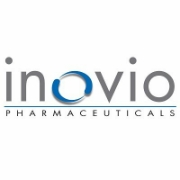
Inovio Pharmaceuticals has announced that the Korean Ministry of Food and Drug Safety approved the initiation of a study to evaluate GLS-5300, Inovio’s vaccine against the MERS virus (Middle East Respiratory Syndrome), in a phase 1/2a trial. The trial will be conducted in South Korea by Inovio’s MERS development partner, GeneOne Life Science (KSE:011000). The International Vaccine Institute (IVI) is fully funding this trial utilizing a $34 million grant Samsung Foundation committed to IVI in 2015 to support the development of a MERS vaccine.
This phase 1/2a study represents the second clinical trial for GLS-5300, which remains the first and only MERS vaccine being tested in humans. The first phase 1 MERS study is being successfully completed at the Walter Reed Army Institute of Research in Maryland. In this study, after a three dose vaccine regimen with GLS-5300 delivered intramuscularly, high levels of binding antibodies were measured (ELISA) in 92% (57 of 62) of evaluated subjects. Significant antigen-specific cytotoxic T-lymphocyte (CTL) responses were also observed. Importantly, all but one evaluated vaccinated subject or 98% (61 of 62) generated an antibody and/or T cell response against the MERS vaccine. Generation of MERS antigen-specific antibody and T cell responses is believed to be important for generating immediate and long-lasting protection against the disease. The vaccine was well tolerated and no significant safety concerns were noted.
The new phase 1/2a trial in Korea will assess the responses of GLS-5300 delivered intradermally. In preclinical challenge studies, GLS-5300 protected 100% of vaccinated rhesus macaques from a lethal MERS virus challenge.
Dr. J. Joseph Kim, Inovio’s President & CEO, said, “Korea was devastated by a MERS outbreak two years ago and now looks to Inovio to produce an approved product for emergency use in Korea. Our DNA-based vaccines, which can be rapidly designed and manufactured, are well matched to meet public health challenges such as this. With financial support from IVI and Samsung, Inovio and GeneOne are expanding GLS-5300 vaccine development in Korea, executing our vision to generate additional immune data to support the potential approval of GLS-5300 in Korea. Our Korean study is also notable because it will utilize our intradermal vaccine delivery device which has demonstrated in other infectious disease trials (HIV, Ebola & Zika) to elicit very high immune responses at a much lower dose.”
Despite the continuing threat of MERS outbreaks, there are no licensed vaccines or treatments for MERS. Since the virus was first identified in Saudi Arabia in 2012, the World Health Organization reports more than 2,000 MERS infections and nearly 700 deaths worldwide. Twenty seven countries have reported cases, including Korea where an outbreak in the summer of 2015 resulted in 186 cases and 38 deaths. While a SARS epidemic in 2003 killed 10% of those infected, MERS has killed about 36% of people who contracted this communicable virus. MERS causes a rapidly progressive respiratory illness that may require intensive care treatment and mechanical ventilation in many patients.
Inovio, partners begin phase, vaccine against deadly mers infection